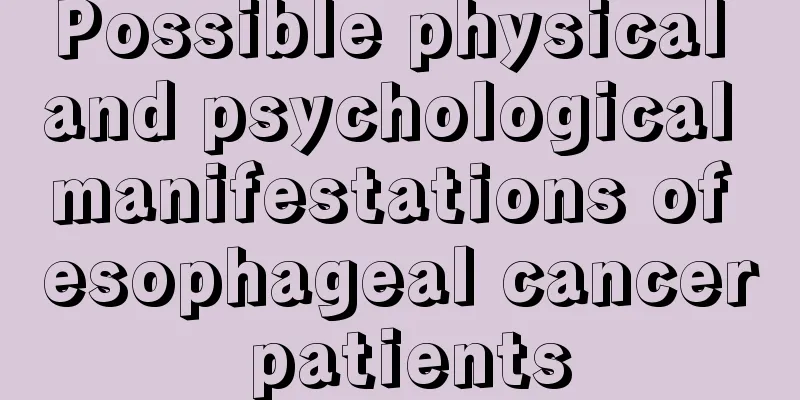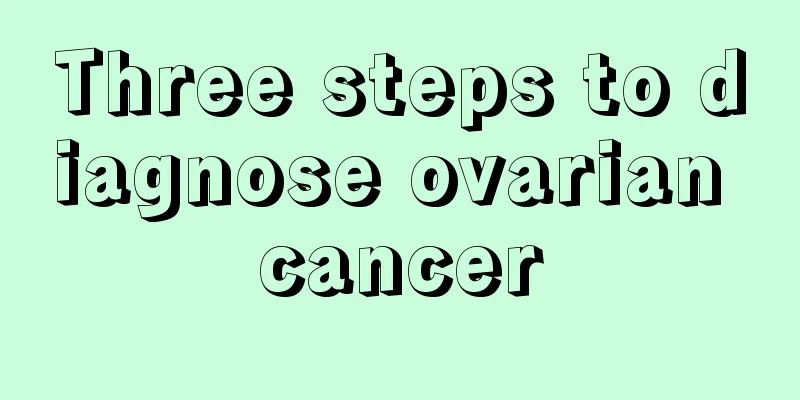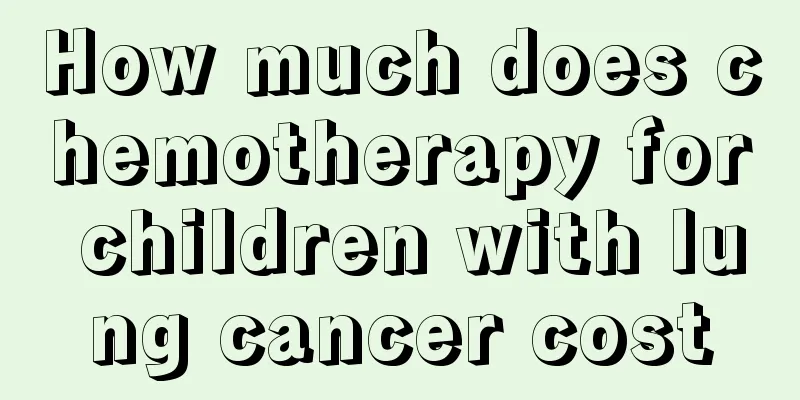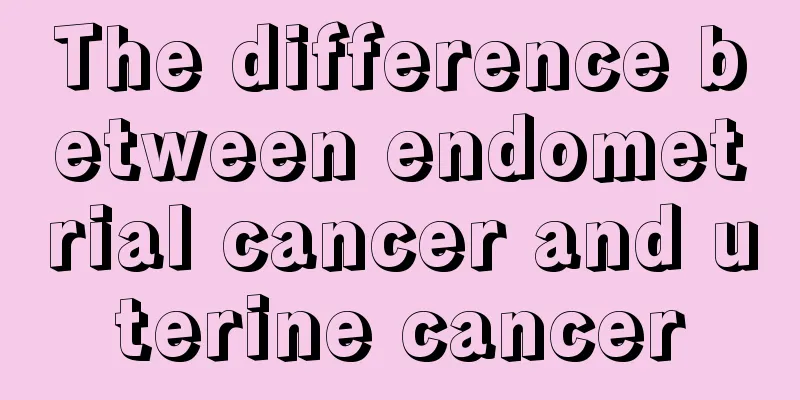Possible physical and psychological manifestations of esophageal cancer patients

|
Esophageal cancer is a very common malignant tumor of the digestive tract. The incidence and mortality rates of esophageal cancer are very high in my country. As cancer continues to develop, the patient will undergo a series of physical and psychological changes. Malnutrition, energy shortage Related factors: Tumor compression leading to progressive dysphagia, insufficient nutrient intake; pharyngeal pain and fear of swallowing; chemotherapy and radiotherapy can lead to decreased appetite and even vomiting Main symptoms: progressive emaciation and weight loss; dry skin and mucous membranes, decreased elasticity; fatigue and preference for bed rest. pain Related factors: As the tumor grows larger, it may cause erosion and ulcers, which may lead to pain; complications such as esophagitis and other digestive system discomfort; and the mediastinum may be invaded by cancer cells. Main manifestations: patients may experience burning pain and dull pain behind the sternum when eating, which is more obvious after ingesting overheated or acidic food; the pain is aggravated when the tumor invades adjacent organs and causes perforation, and may even cause heavy bleeding; the pain may involve the suprasternal concave, scapula, neck, etc.; in the late stage, there is persistent dull pain in the chest, back and scapula. Restricted activity Related factors: pain; malnutrition; cachexia Main symptoms: dizziness, headache, blurred vision, weakness in the limbs, mental depression; difficulty breathing during activity, chest tightness, chest pain, sweating, etc.; difficulty in taking care of oneself in daily life, such as dressing, getting out of bed, eating, personal hygiene, going to the toilet, etc., which are difficult or impossible to take care of oneself. Pessimistic and depressed Related factors: loss of confidence in treatment; loss of interest in life and despair. Main symptoms: crying or keeping silent, refusing to eat; having suicidal thoughts or engaging in self-harming behaviors; refusing to cooperate with treatment and care, quarreling with family members; refusing to interact or talk with others. |
<<: What are the symptoms of endometrial cancer patients
>>: There are 5 pathological types of ovarian cancer
Recommend
What are the dangers of glioma
Glioma is a very harmful tumor. Nowadays, more an...
Will eating black beans increase the size of follicles in patients with polycystic ovary syndrome?
Polycystic ovary syndrome is a common disease in ...
How to tell if zongzi is cooked
After making the rice dumplings, they need to be ...
What's the best dish to eat when you have stomachache
People should never underestimate stomach disease...
Is treadmill running really effective for weight loss?
Now is an era when the topic of weight loss is ve...
What causes fissured tongue? Causes and diet of tongue fissures
What causes fissured tongue? Traditional Chinese ...
Can I eat fruit immediately after a meal?
It is better to eat cold food first and then hot ...
Prostate cancer life expectancy
The life expectancy of prostate cancer patients v...
The 5-year recurrence rate of ovarian cancer after surgery
Although ovarian cancer is easier to treat than o...
How to prevent pancreatic cancer
People who like to eat high-fat, high-calorie foo...
What tea can lower blood sugar?
As people's living standards improve, the foo...
4 small recipes for the dietary treatment of intestinal cancer
Intestinal cancer patients who want to recover ea...
Clear mucus in stool
The excess waste produced by the human body every...
Can I wash my hair during the first month of confinement?
One time when I was reading Weibo, I saw a former...
Steps for making pot-wrapped pork at home
There is a very famous dish in Northeast China, t...









